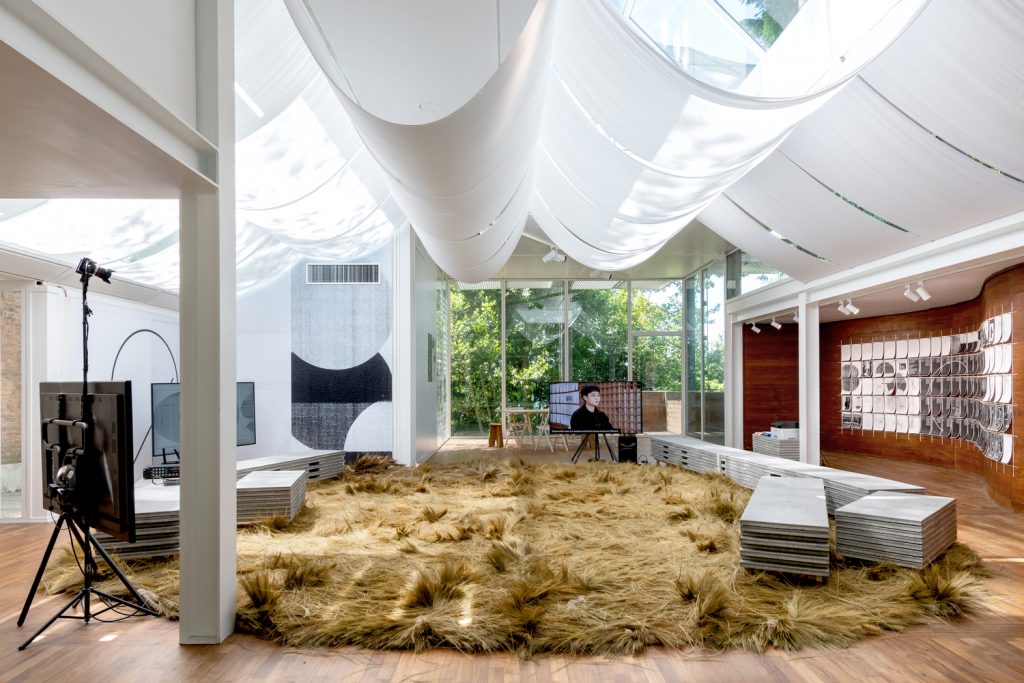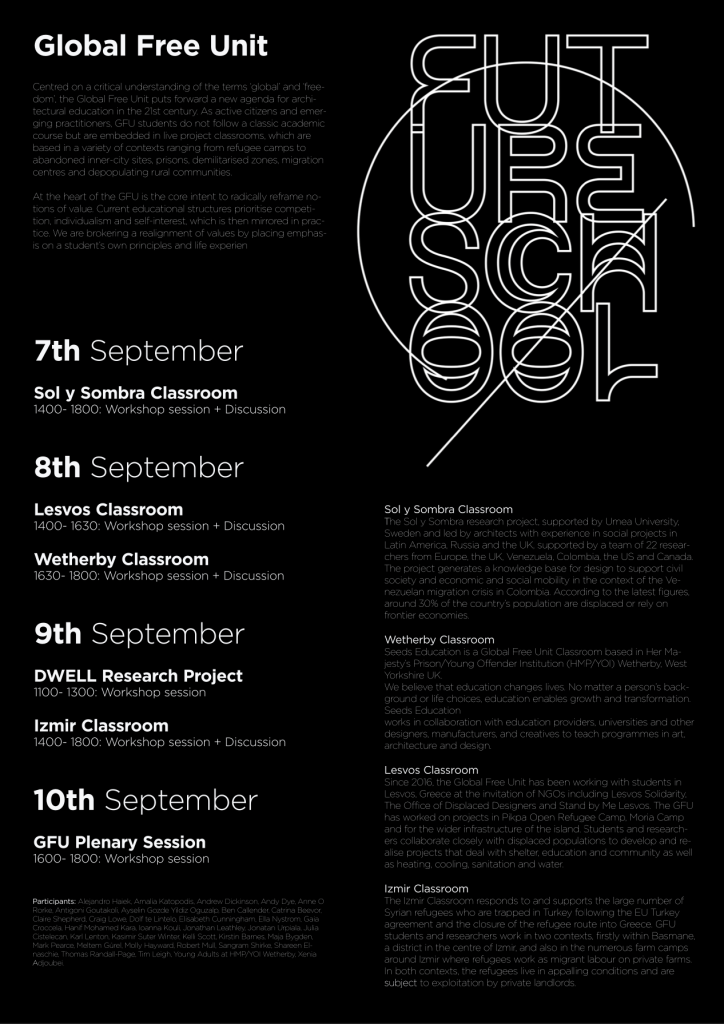
Our program’s director Carmen Mendoza Arroyo took part in a debate session organised by the Korean pavilion.
On 8 September, the assistant director of International Relations at UIC Barcelona School of Architecture, Carmen Mendoza-Arroyo, took part in the debate session titled “Duty of care in the context of displacement: reflections on ways of working in Lesbos”, organised by Future School, the Korean Pavilion at the 17th Venice Architecture Biennale. The session was curated by former student of the Master’s Degree in International Cooperation, Sustainable Emergency Architecture, Shareen Elnaschie, co-founder of the organisation, Office of Displaced Designers.

In her speech, Carmen Mendoza-Arroyo advocated the need to implement a new model that welcomes refugees by implementing permanent and long-term housing policies. “While local authorities, NGOs, civil society, urban planners and many stakeholders are working on emergency shelter solutions for refugees (temporary shelters, reception camps, etc.), there is an urgent need for a shift towards a new model of permanent housing that allows for long-term community building and meaningful social inclusion of displaced people”, she said.
Following her line of research at UIC Barcelona, Carmen Mendoza-Arroyo also stressed the need to address spatial indicators that could support the integration of refugees in the long term. “Urban contexts have become the most suitable places to question the spaces of and for immigrants in European cities. Housing programmes should include flat allocation systems, the participation of these people in housing finance schemes, tenants’ rights and policies to protect against discrimination,” she argued.
The debate session aimed to analyse how architects, urban planners, designers and engineers can contribute to the integration of refugees in Europe, using the European response to the 2015 refugee crisis in Lesbos as a point of reference.
